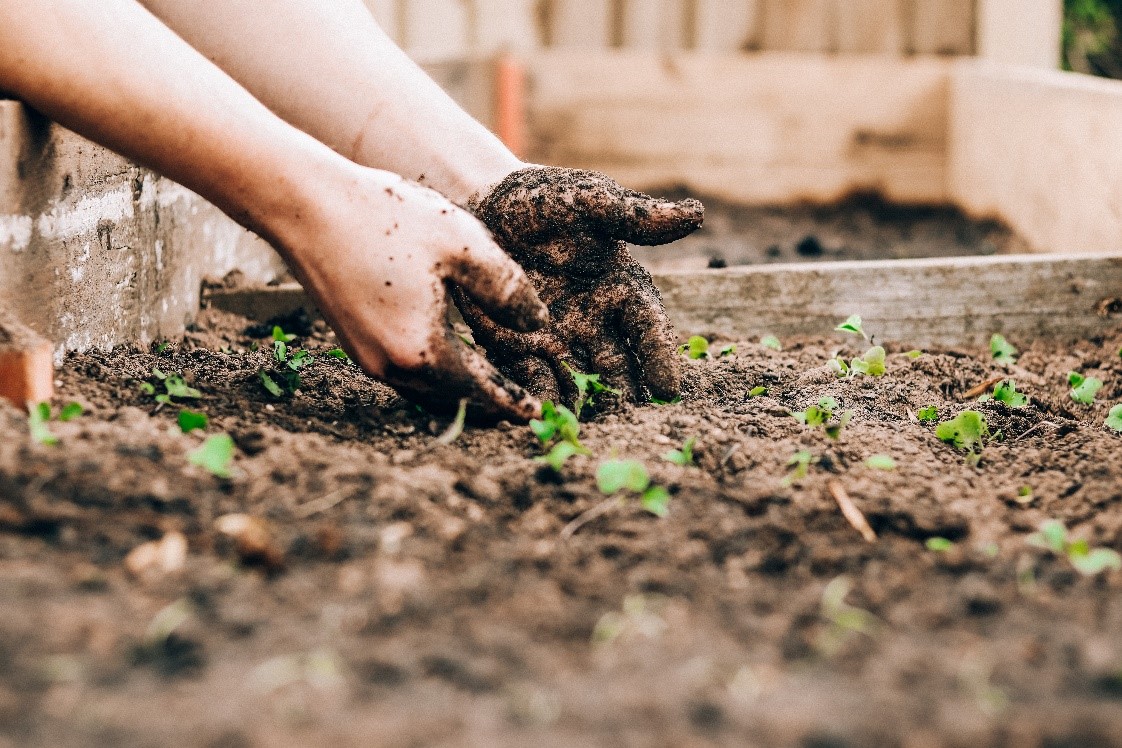
By: Breanna Salazar, PT, DPT, Barnabas Health Ambulatory Care Center
Spring is finally here, and with spring comes gardens! It’s one of my favorite times of the year, even if I don’t have the greenest thumb. Gardening provides quite a few health benefits. Besides providing physical activity, gardening has also been shown to reduce symptoms of stress and anxiety, and decrease risk of dementia. However, just as with any physical activity, gardening can pose some risk of injury. Here are a few tips to help you stay healthy in your gardening ventures this year.
- Watch where you step. Yards and gardens are full of uneven terrain and obstacles. Between the holes you dig, the tools you are using, and general dirt erosion, gardens can become rife with tripping hazards. It is important that when you get up to move, you are aware of your surroundings so that you don’t accidentally step in a hole.
- Use a gardening stool. One of the most common complaints that I hear in regards to gardening is knee pain after kneeling for too long. An easy way to combat this is to use a light bench or stool to sit on rather than kneeling on the ground.Using a bench will allow you to change positions easily and more frequently, and will allow you to get up from the ground easier. Many gardening stools are now made to flip so that you can either sit or kneel on them
- Take breaks. I know that it is easy to become absorbed in your work, especially when you are doing something that you love. However, just like with all physical activity, it is important to let your body take breaks. This tip is especially important at the beginning of the season as your body re-adjusts to a new activity. Without proper rest, you will increase your risk of injuring tired muscles. By taking the time for rest breaks, you will ensure that your body stays healthy for the entire season.
- Use proper lifting mechanics. There can be a lot of heavy lifting involved when it comes to gardening. Whether it is a bag of mulch or a freshly watered hanging plant, it is important that you pay attention to how you are lifting these heavier items. There are three key points to lifting heavier objects: take a wide stance (about shoulder width), bend your knees, and keep the load close to you. By bending your knees, you are ensuring that you use larger muscle groups to do the lifting for you. If you are concerned about heavy loads, ask for help or use a rolling cart to help you move the loads around your garden.
- Use your tools! I promise you, the tools are there for a reason. When digging into a new area, make sure to wear good quality gloves in order to protect your hands from unknown hazards such as rocks and broken glass. When pulling weeds, use a trowel to help loosen dirt and break thick, stubborn roots. Use a rake to help you clear out debris and spread mulch. My point is that gardening tools are there to make the work easier for you to accomplish, and using them will help you to avoid injury.
Gardening can be a fun and fulfilling activity for people of all ages. It’s a great way to get outdoors, and connect with nature. I hope that these tips will help you stay safe this spring and summer, and help you to enjoy your garden to the fullest. If you do happen to sustain an injury that prevents you from participating in an activity that you love, our experienced staff is here to help you.
Bonus fact: Apparently, adding baking soda to soil will make your tomatoes sweeter. This is because it decreases the acidity of the soil.
Breanna Salazar PT, DPT, Doctor of Physical Therapy | Breanna.salazar@rwjbh.org
Bree is a physical therapist at Barnabas Health Ambulatory Care Center in Livingston. She treats patients with both orthopedic and neurological conditions, with a special interest in craniofacial pain and temporomandibular joint dysfunctions. Bree completed her bachelor’s degree in biology at Ramapo College of NJ in 2014, and received her doctorate in physical therapy at Rutgers University in 2016. She completed LSVT Big certification in 2020 and is actively working towards her CCTT from the Physical Therapy Board of Craniofacial and Cervical Therapeutics. When she is not in the clinic, she enjoys walking with her dogs, spending time with family, and knitting.
The Cooperman Barnabas Medical Center Rehabilitation centers are open and ready to help you achieve your goals. With four locations in West Orange, Millburn and Livingston, the experienced and compassionate staff at Cooperman Barnabas Rehabilitation offers adults and children the specialized care they need to resume an active life after surgery, injury or illness. They are committed to providing patients with the most advanced services in a safe, caring and soothing environment. For high-risk patients who are unable to visit in person, telehealth is an option. Patients do not need a prescription for physical therapy services.
For more information, or to schedule an appointment, call 973-322-7500.